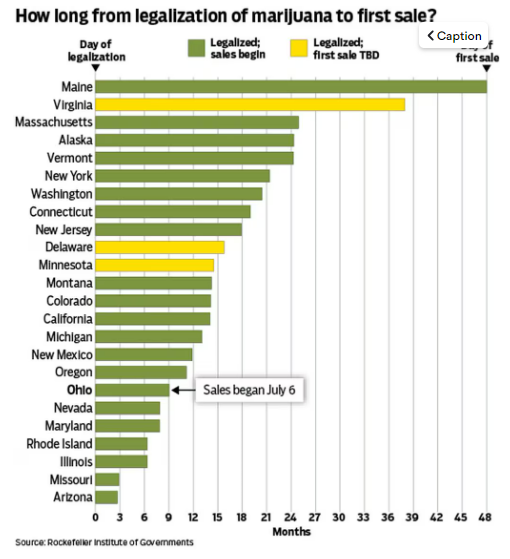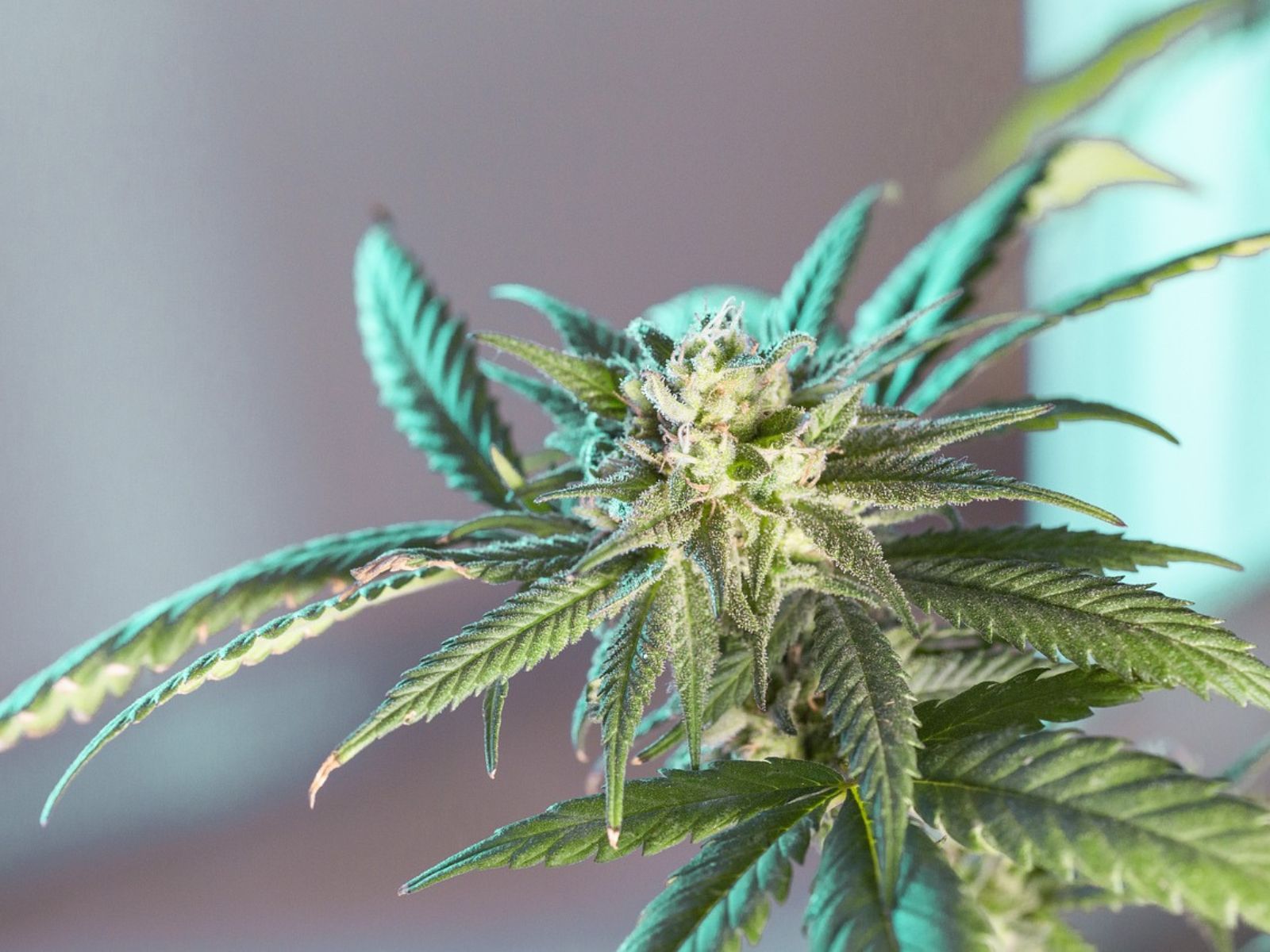Currently, 24 states have adopted adult-use cannabis legalization measures in the United States, along with the District of Columbia. Cannabis remains prohibited at the federal level in the U.S., although cannabis is expected to be rescheduled from Schedule I to Schedule III in the near future.
The first states to legalize cannabis for recreational use were Colorado and Washington State on Election Day in 2012. Colorado was the first to launch regulated adult-use cannabis sales at licensed retail outlets, with the first sale occurring on January 1st, 2014. Washington would become the second state to do so in the summer of 2014.
The Rockefeller Institute of Government, a New York-based public policy think tank, recently conducted an analysis examining how long legal states have taken from the day recreational legalization was approved to launching regulated sales.
The fastest state to do it was Arizona (less than 3 months) and currently the longest is Maine (2 years), although Virginia is approaching Maine’s record. Below is a graph demonstrating the results of the analysis by state, as first published by Dayton Daily News:

Various factors contribute to the speed in which a state government goes from legalization to the launch of regulated sales. States that already had a regulated medical cannabis industry in place typically launched adult-use sales faster since there was already a framework for policymakers and regulators to work with. Political gridlock in some states is another contributing factor to sales launch timelines.
Ohio is the latest state in the U.S. to launch regulated adult-use cannabis sales, with sales beginning earlier this month.
“Only six other states had faster launches than Ohio: Nevada, Maryland, Rhode Island, Illinois, Missouri and Arizona, which had the quickest turnaround time from legalization to the start to recreational sales, according to the Rockefeller Institute of Government.” stated Daytona Daily News in its coverage.
The United States adult-use cannabis industry has generated over $20 billion in total tax revenue since the first legal recreational cannabis purchase was made in Colorado on January 1st, 2014 according to a report by the Marijuana Policy Project.
“Through the first quarter of 2024, states have reported a combined total of more than $20 billion in tax revenue from legal, adult-use cannabis sales. In 2023 alone, legalization states generated more than $4 billion in cannabis tax revenue from adult-use sales, which is the most revenue generated by cannabis sales in a single year.” the Marijuana Policy Project stated in a press release.
79% of people living in the United States lived in a county with at least one regulated cannabis dispensary according to an analysis by the Pew Research Center. The Pew Research Center also found the following:
- 74% of people in the U.S. live in a state where recreational or medical cannabis is legal
- There are nearly 15,000 cannabis dispensaries in the U.S.
- California has the most overall dispensaries (3,659)
- Oklahoma has the most dispensaries per capita (36 dispensaries for every 100,000 residents)
Total legal cannabis sales in the United States are expected to reach $31.4 billion in 2024 according to a recent analysis by Whitney Economics. Additionally, leading cannabis jobs platform Vangst, in conjunction with Whitney Economics, estimates that the legal cannabis industry now supports 440,445 full time-equivalent cannabis jobs in the United States.
Whitney Economics also projects the following legal cannabis sales figures in the United States for the coming years:
- 2024: $31.4 billion (9.1% growth from 2023)
- 2025: $35.2 billion (12.1% growth from 2024)
- 2030: $67.2 billion
- 2035: $87.0 billion
The emerging legal cannabis industry in the United States is projected to add roughly $112 billion to the nation’s economy in 2024 according to an analysis by MJBiz Daily. The projection is part of the company’s 2024 MJBiz Factbook.
“The total U.S. economic impact generated by regulated marijuana sales could top $112.4 billion in 2024, about 12% more than last year,” MJBiz stated in its initial reporting.

